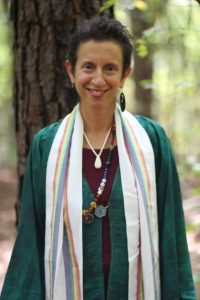Beyond Fear-Driven Survival
The quote from Talmud at the beginning of Jewish Megatrends is very beautiful: “Fortunate is the generation in which the elders listen to the youth” (Rosh Hashana 25b). We should be so lucky.
I agree with Rabbi Sid’s assessment that Jews are seekers of wisdom (dorshei chochmah), seekers of social justice (dorshei tzedek), seekers of community (dorshei kehilla), and seekers of lives of sacred purpose (dorshei kedusha). This is a lovely container for the work that many of us are doing. However, Schwarz’s essay also gives evidence that the organized Jewish community is not listening to the very Jews it needs to speak with and engage (not all of whom are young). We are a long way from the vision of the Talmudic quote.
The organized Jewish community frames the issue of Jewish disengagement in ways that I find deeply problematic. They see threats to the survival of the Jewish people because of:
- the dramatic drop in Jewish identification and affiliation due to the successful integration of Jews into American society;
- the weaker commitment of next-generation Jews that need to be ”brought into the Jewish community” or be permanently lost;
- shifts of power from the US and Europe (an unsubstantiated assumption), and globalization (now being challenged by nationalism, extremism, and xenophobia);
- the battle for direction among the world’s Muslims;
- new security challenges including the Iranian threat (not new and not among the most pressing security threats);
- anti-Semitism and efforts to delegitimize Israel;
- and the division of the American Jewish community into two, roughly equal divisions: one healthy and engaged in all aspects of Jewish life—religious, cultural and political; the other division is near bankruptcy (wow) due to soaring intermarriage rates with low rates of conversion by the non-Jewish spouse, birth rates below replacement levels, and a dramatic decline in Jewish philanthropy for Jewish causes and membership in major Jewish organizations.
I do agree that the organized Jewish community is in peril. And I applaud all efforts to revitalize it that are inclusive and progressive in nature. However, this peril is not necessarily a bad thing. As the Schwarz essay mentions, within the malaise lies the seed of the solution. Unconventional and amazing ways of being Jewish are growing and thriving everywhere in the U.S. and often go either unnoticed or deliberately disregarded within Jewish conventional communities that actively refuse to grapple with changing and evolving Jewish identity and practice.
Grouping Jews into tribal and covenantal categories dramatically oversimplifies and distorts the nuances and trends in our Jewish communities and how Jews identify themselves. The assumption that inter-marriage is a menace to Jewish identity is a fundamentally racist and classist notion. Growing numbers of Jews feel that Torah narratives and the liturgy of our worship services are deeply skewed in ways that feel oppressive and alienating. Using that inherited language should not be the main litmus test for being a good Jew.
Minyanim and havurot (creatively and expansively defined) are actively addressing the needs of growing numbers of Jews who seek alternatives to mainstream and synagogue-based Judaism. Pouring money into decidedly biased Jewish educational institutions and trips to Israel that are designed to garner support for, what many feel is, a repressive regime is not the way to ensure our survival as a people. This is a regressive and fear driven measure that focuses on economic and geo-political survival at the expense of our integrity and soul as a people.
We need to embark on a brave and potentially heart rendering analysis of the ways that Jews maintain and exert power within our communities that actively marginalize and oppress others within and beyond it. We must explore whose agendas we are furthering and why. We must embrace the notion that activism, community, deep spirituality, and seeking wisdom are at the very heart and soul of what it means to be Jewish. We must give voice to the fact that avoiding elephants in the room runs contrary to Jewish resiliency as well as to spiritual growth and practice.
If we want to survive as a people, we must position ourselves at the very edges and at the forefront of a revolution in which every life is sacred and protected. Too much of the effort to insure Jewish survival is driven by monetary concerns and the perpetuation of existing Jewish institutions. Many of the leaders of the established Jewish community fear that if younger Jews do not engage in the institutions that these leaders head up, that Jews will somehow cease to exist as a people. I don’t think that is true. Rabbinic Judaism, including synagogues, are an important part of our history and have sustained us to until now. I value their contribution and hope they remain part of our community. However, I do not think they should or will remain at the center of Jewish communal life. I would suggest that Jews are nothing if not resilient, and that we will continue to recreate and re-invent ourselves as we have in the past.
________________________________
Kohenet Rachel Galper is the founder of Our Sacred Circles in Durham, NC, a multi-faith women’s collaborative that supports women activists, artists, educators, healers, and caregivers. She is a spiritual guide, ritualist, magic maker, arts educator, and activist.



